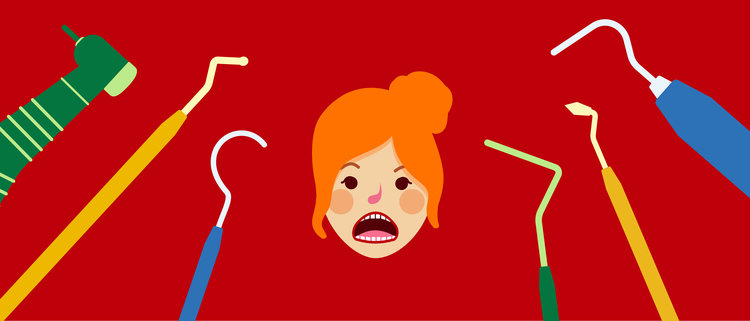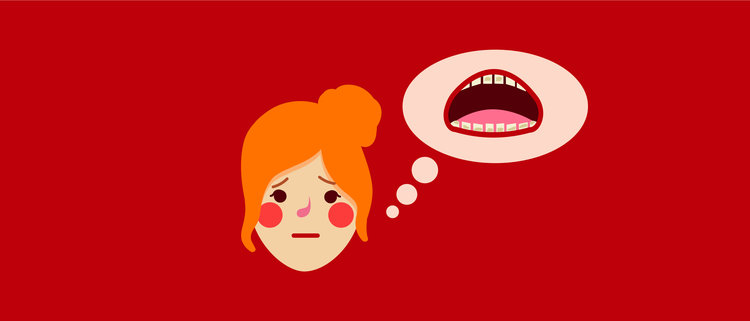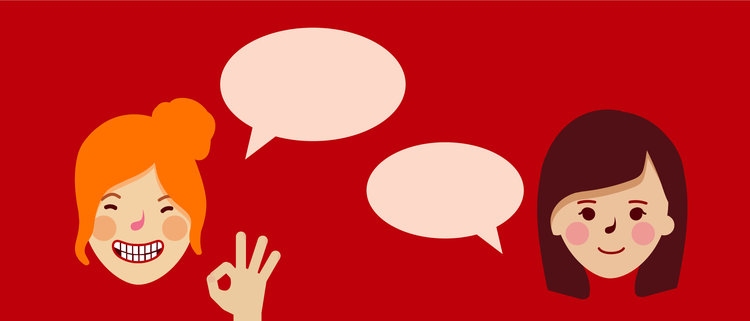The Dangers of Avoiding the Dentist

“The only thing we have to fear is fear itself.”
It’s a phrase we’ve all heard before. It also happens to be a phrase that feels completely useless when we’re forced to actually confront the thing making us afraid in the first place. Like, for example, someone with a fear of the dentist waiting to be called in for their appointment.
Sure, the dentist may not be as outwardly intimidating as skydiving or swimming with sharks, but studies say that anywhere between 9 and 15% of the population in the United States avoids going to the dentist because of their fear. That’s over 30 million people! In the UK, 36% of the people who avoided going to a dentist said it was a direct result of their fear.
Whether you call it a fear, a phobia, or anxiety, dreading visits to the dentist can cause patients a number of problems – both in the short and long term.
Aside from the gradual and inevitable build-up of plaque and tartar that only a dentist can remove, patients who avoid the dentist drastically increase their chances of developing a number of oral health issues (ranging from cavities and gum disease to tooth decay and eventual tooth loss). In addition, patients lose the ability to pro-actively take control of their dental health and are far less likely to spot developing health issues issues (like oral cancer, for instance) than a dental professional.

Why Do People Fear the Dentist?
So what causes the kind of extreme fear that keeps people away from the dentist? And more importantly, what can patients do to overcome their fear?
Here are some of the most common reasons patients avoid the dentist:
Negative Previous Experiences
If a patient had a terrible or traumatic experience at the dentist in the past, it’s not particularly surprising that they would want to avoid any chance of history repeating itself.
Shame or Embarrassment
In some cases, a patient’s fear may have morphed into shame over the state of their teeth after years of avoiding the dentist. At this point, a patient who previously avoided the dentist out of fear now continues to put off making an appointment because they’re unhappy with the current state of their oral hygiene and are too embarrassed to meet with their dentist.
Aversion to Pain and Discomfort
Depending on a patient’s background, they may have been through a number of painful or uncomfortable dental procedures and want to avoid having to sit through them again. Even a routine cleaning can trigger those same feelings of anxiety a patient has experienced in the past.

How Can You Overcome Fear?
Talk to your Dentist
Set up an appointment with your dentist and make sure they know that it’s purely to discuss the possibility of treatment. This way, you can go through the motions of booking the appointment and showing up to the dental office without actually having to sit through an appointment you’re not ready for yet.
Talk to your dentist about your fear and listen to what they have to say. Most dental practices offer specialized services (like laughing gas) to help a patient stay as relaxed as possible during their appointment. Here at Archer Dental, we offer a number of anti-anxiety options ranging from laughing gas to lavender scented neck pillows and netflix. Dental work can even be performed when you’re asleep if that’s an option that appeals to you.
Actually booking and following through on an appointment will be much less anxiety-inducing if you’ve had a chance to speak with your dentist one-on-one and know that they understand where you’re coming from and what your needs are.
Consider Therapy and/or CBT
Sometimes your fear of the dentist can be part of a larger problem. This is when looking into a therapist might be the most helpful option for you. In addition to listening to you and helping you develop coping mechanisms that work best for your personal situation, a therapist is an objective third party. You can be honest and open with them without judgement.
Your therapist might also suggest something called CBT (Cognitive Behavioural Therapy). CBT is a great way to re-train the neural pathways in your brain using a mixture of psychotherapy and behaviour therapy so you can overcome your fear of the dentist in a relatively short period of time (often within 5 to 10 months)
